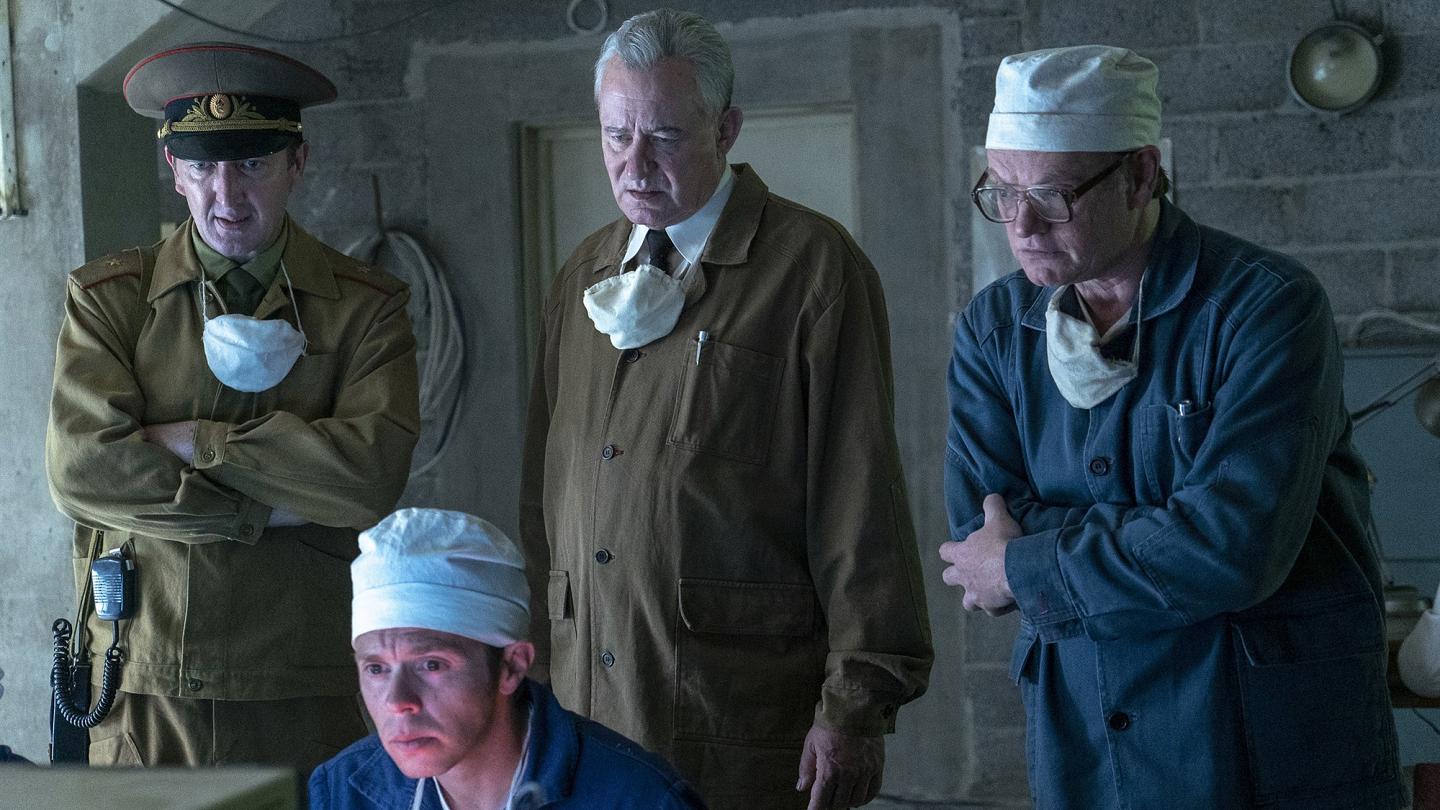
- Television
Russian Audiences (and Authorities) React to ‘Chernobyl’
HBO’s Chernobyl has become an international sensation of sorts, garnering accolades – and stirring controversy – worldwide. The fictionalized story of the worst nuclear disaster ever has ignited debate in the US, Europe and, perhaps not surprisingly, in the countries of the ex-Soviet Union, which were most affected and where the miniseries was set and shot. The show operates on parallel tracks, first of all recreating the feel and look of late Soviet life in unprecedented detail. Creator and writer Craig Mazin has said that his main focus was to juxtapose official hypocrisy, bent on controlling information with the heroism of the untold citizens who contributed to containing the crisis, recently describing those selfless acts to HFPA journalists: “It is absolutely heart wrenching and beautiful. I want their story to be known. I want people to know as many of their names as possible, and I want people to know their story. And I want people to see above all what happens when we don’t tell the truth.” Even so, the series has become a bone of political contention, attacked as “propaganda” by a current Russian regime which some see as perpetuating some of the Soviet policies in constraining free expression. HFPA journalist Serge Rakhlin, who left the USSR for the United States, writes about reactions in Russia.
An event which shook the now-defunct Soviet Union is once again shaking the world, albeit virtually. In some ways the repercussions of HBO’s Chernobyl mirror those of the actual disaster in how it has evoked divergent reactions in East and West, 32 years after the fact.
The miniseries Chernobyl produced by HBO in conjunction with British network Sky was written and produced by Craig Mazin and directed by Johan Renck. It recounts the catastrophe of 1986, when a nuclear reactor at the Chernobyl nuclear power plant in Ukraine (then was the part of the USSR), exploded during what should have been a routine test.
In the United States, the show has received a 9.7 rating on IMDb. This is higher than the rating for the ultra-popular series Game of Thrones, and the highest rating ever given to a TV show. The Russian audience watched the series on the streaming service Amediateka, (as well as other, perhaps not quite legal streaming sources). Ratings on the Russian analog of IMDb, Kinopoisk (Film Search), paralleled American ones, garnering a score of 9.1.
Russians who watched the series noted the extreme authenticity and thorough, even scrupulous reproduction of Soviet daily life of that time, To ensure accuracy a significant part of the filming took place in Lithuania and Ukraine, both former Soviet republics.
Audiences also seemed to welcome Chernobyl’s assessment of the moral – or immoral – choices when it came to concealing the truth about the catastrophe, and the outright lies from the lowest levels of bureaucracy to the highest ranks of Communist party leadership of the time, which cost a great many lives.
Finally, many Russians appreciated that the series paid tribute to the heroism of the people who fought to control the disaster – firefighters, soldiers and miners, as well as nuclear scientist and academic Valery Legasov (Jared Harris) and Deputy Chairman of the Council of Ministers Boris Scherbina (Stellan Skarsgård), who led the effort to manage and reduce the consequences of the meltdown, paying with their lives for that task. As reported by ABC news, Russian journalist Ilya Shepelin, wrote in The Moscow Times, ‘The fact that an American, not a Russian, TV channel tells us about our own heroes is a source of shame that the pro-Kremlin media apparently cannot live down.’
Others added pointedly extended the criticism to the current regime as heirs of the Soviet propagandists who actively worked to conceal Chernobyl’s consequences. Yuri Grymov, Artistic Director of the Modern Theater in Moscow commented: ‘And now, we look in the mirror of Chernobyl and understand — some with sadness, others with outright horror, and some with pleasure — that nothing has changed. That everything around us is the same. The same insignificance of human life before the state machine. The same total irresponsibility, the same reluctance to change something, the same deep, almost animal bureaucratic fear of losing their ‘feeding’, their habitat. Same lie.’
In a recent TV interview, famous Russian film director Valery Todorovsky, author of the popular TV series Thaw and Bolshoi, likewise praised not only the high professional level of Chernobyl but also the high moral standards of the show, applicable not only to the then- Soviet realities but also for the present time.
As for the official reaction the authorities mostly refrained from comments. On social media, many quibbled about the artistic license taken by the filmmakers in recounting historic facts – something normal for fact-based fiction- or aired complaints about visible modern windows in Khrushchev-era buildings.
But that is not all. The “truth” manipulation machine also appears to have gone to work. The main state TV Channel, One, quickly prepared a ‘documentary’ about the Chernobyl disaster, which will be shown on June 22. And heavy pro-government TV channel NTV is currently filming a feature TV series which includes an alternate theory of the disaster involving a CIA officer who infiltrates the power plant before the explosion – and the valiant KGB officers who work to expose him.
We’ll have to wait and see how their ratings will be.

